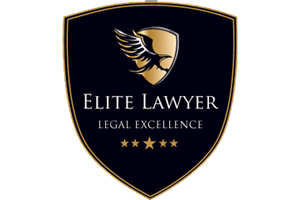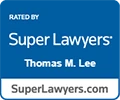- Free Consultation: (213) 251-5533 Tap Here to Call Us
Is It Better To Fight Or Settle Early?
In light of the present budget crisis crippling our court system, it is taking longer and longer for a litigant to have their day in court. The local Los Angeles County courts are setting trial dates as far out as two years after the complaint was filed. And, if a litigant needs to file a motion, the hearings won’t take place until 6 months or longer in some cases. Long drawn out litigation typically results in higher attorney’s fees and costs to all parties. Accordingly, it is in the parties best interests to pursue early resolution.
The legal system encourages parties to a litigation to resolve their disputes on their own, and the Courts will encourage and enforce settlements whenever possible. This is so because the litigation process is very unpredictable and the parties typically have very little or no control over the results at trial. I have personally experienced both sides of this spectrum – I have won cases that I thought were doomed, and I have lost “no brainer” cases as well. As an advocate, my mission is to persuade judges and juries to balance the scale of justice favorably to my client. However, there are times when judges and juries forget their duty to be impartial and make biased conclusions.
Mediators and settlement judges will tell all parties at the inception of the settlement conference/mediation that the settlement process is the one and only time the parties will have any control over the outcome of the case. In other words, the employer can control the settlement by agreeing to pay or not pay the “final” demand, and the Plaintiff employee is also in control by agreeing to take or not take the employer’s last offer.
Whenever I counsel my employee clients, I always have them consider the strength of their case, the amount of time that they will lose going to trial (in addition to the continuing stress), and whether any judgment we are awarded at trial can be collected from the employer, among other things. I also advise my clients as to whether or not the employer is bluffing. If all signs point to settlement, then that is the route we should inevitably take. However, if I sense the employer is bluffing about wanting to go to trial, or if the employer’s lawyer has minimal trial experience, I advise my client to control the case by walking. For example, I represented a former manager employee of a successful Korean restaurant organization who was given a final offer of $25,000 at mediation earlier this year. Knowing that the Defendant owner is scared to death of the litigation process – mostly indicated by a complete lack of emotional control at their deposition, and also by the fact that the Defendant was represented by incompetent big firm counsel who’s primary practice is to lengthen and delay the litigation process, we rejected the offer and walked. One month later, the Defendant made us a very handsome offer we could not refuse, and we settled. However, because the litigation was so drawn out and was heavily discussed among the Defendant’s other employees, I was able to retain several more former employees of the Defendant as clients. In fact, I have been suing the same Defendant for the past 7 years repeatedly over the same violations because they keep retaining unethical counsel that refuse to settle early.
The knowledge and perspective I gained representing Plaintiff employees are implemented into my strategies and goals when I represent Defendant employers against claims brought by former employees. While it is true that I can stretch out my attorney’s fees paycheck by using the same delay tactics by other big firm counsel, that certainly is not in my client’s best interest. I know for a fact that the longer a case goes on, the more likely that more and more of the Defendant’s other employees will find out and become curious as to whether or not they should bring similar claims of their own. Hence, where settlement is possible, I always have my employer clients come up with a serious offer that will likely be accepted by the Plaintiff. If a case is resolved early, the employer can take immediate steps to protect itself from future claims. First – the employer must follow each nook and cranny of the law especially because California’s labor laws were written to protect employees, not employers. Insulting the Plaintiff employee with measly nuisance offers where the claims have some merit will only result in going to trial where the odds of prevailing are stacked against the employer and where the skeletons in the employer’s closet will be exposed. Who knows what will happen if the employer’s practice of paying its employees in cash and filing false employment tax returns are made part of the public record and discovered by the EDD or IRS? It’s not that the employer should make an offer the employee can’refuse, but rather, it should be a serious offer that will result in a settlement that neither the employer or employee happily walks away from. Yet, it will be a settlement in which both parties had control over. This is what all respected settlement judges and mediators agree to be a good settlement.
Please note that the information I am providing here in this entry, or in my website is NOT to be construed as legal advice nor is it meant to form an attorney-client relationship. For a free legal consultation by phone, please call or email me anytime.













